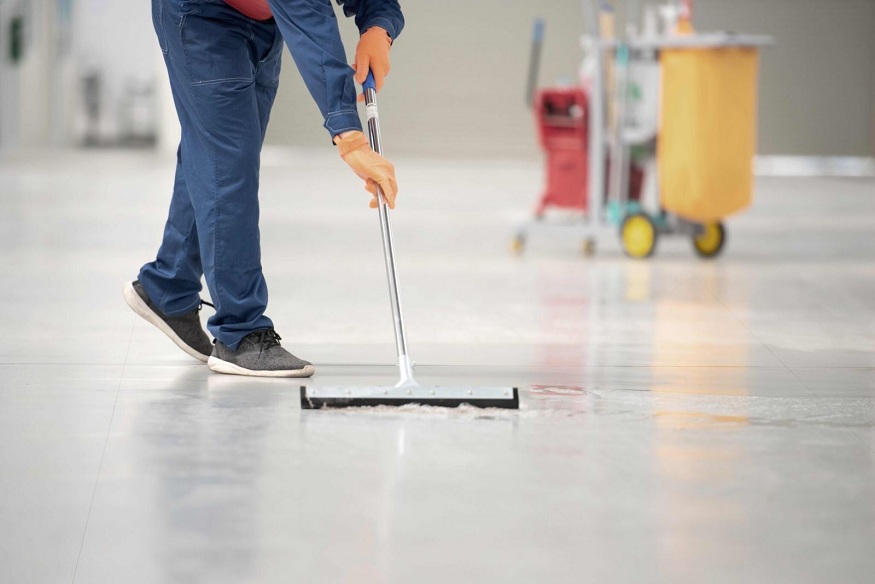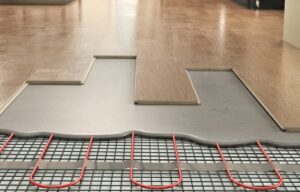Ceramics and grouting in the interiors are ubiquitous. Durable and an integral part of decoration, ceramics can be cleaned quite easily on a daily basis and remain shiny for a long time. However, it requires a little more in-depth maintenance from time to time. It is the same for the joints which sometimes can become grayish and stain. In the quantity of household cleaning products available on the market, it is quite easy to get lost. Here we provide you with all our advice for maintaining the ceramic and cleaning your joints so that they remain beautiful as on the first day.
Ceramic maintenance: make the right choice!
The maintenance of the ceramics is weekly, if not daily. For the daily maintenance of your ceramics, the most common products found on the market are sufficiently effective and it is rarely necessary, with a good quality of ceramics, to use more sophisticated products than soapy water. Using environmentally friendly products is a plus that will also not attack the ceramic and allow it to age well.
But, if your ceramic has more encrusted, stubborn stains or even cement residues (after the installation of joints for example), it is important to use an adequate and effective product to avoid further damaging your ceramic. If there are many products on the market or more or less effective grandmother techniques, it would be a shame to use a product that is too acidic for your type of ceramic and to damage it even more. First, when looking to clean a tile there are two things to consider: 1) what do we have to clean (what got the tile dirty) and 2) what is our surface (the kind of tile) ?
Basically, there are three families of cleaning products:
Neutral products:
These products are used for regular maintenance. They can be used on any surface and are especially recommended for cleaning natural stones, as they will not damage the sealants applied.
Our product: PRO CLEAN , a neutral multi-surface cleaner for routine cleaning of ceramic, natural stone, quartz, hardwood, laminate and vinyl surfaces.
Alkaline products:
These products are used for more in-depth maintenance. They can be used on the majority of surfaces (it will be necessary to pay attention to certain quartz according to the alkalinity level of the product). These products are excellent for cleaning grease. These are therefore the products to be favored for a good cleaning in the kitchen , such as the backsplash. Alkaline products will not harm grout or most stone, but can shorten the life of a sealer if used too frequently.
Our product: PRO DECAP is a degreaser cleaner for ceramic, natural stone, quartz and grout joints that thoroughly cleans most household stains.
Acid products:
These products are made to clean mineral deposits (limestone deposits, rust stains, cement or gypsum residues, etc.) and soap stains. They are therefore perfect for showers and entrance floors . A slightly acidic cleaner will be ideal for the occasional maintenance of these places. If there is a major deep cleaning to be done, higher concentration products can be used.
But beware! Acid products are not recommended on limestone (marble, travertine, limestone, etc.) and too frequent use of too strong a product could damage cementitious grouts.
Our product: PRO NET II , a mild acid cleanser.
We also have a product specially designed for showers: the PRO SHOWER . That is to say a slightly acidic product, to remove soap residue and traces of water, but also hydrophilic , that is to say that it will leave a protective film on the surface that will repel water. . The water will therefore not be able to cling to the surface and dry out leaving a residue. Perfect for tiles, but also for windows. But be careful again with marble, travertine or other limestone tiles.
The use of a slightly acidic cleaner, without phosphate and without ammonia, is strongly recommended to maintain the quality of your ceramic. PROMA products, in addition to being environmentally friendly, are biodegradable, effective against the most stubborn dirt encrustations, cement residues, etc. Do not hesitate to use a product that corresponds to the types of soiling in order to preserve the quality of your ceramic.



